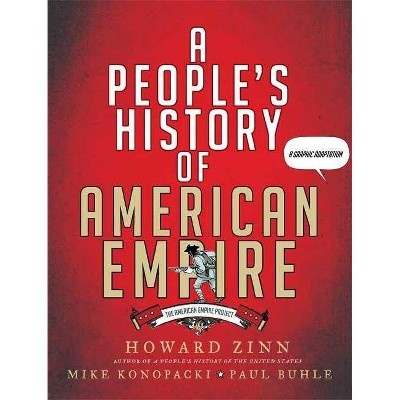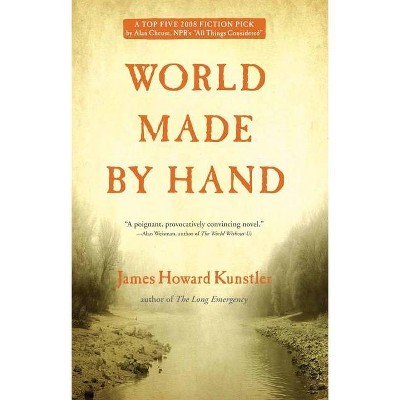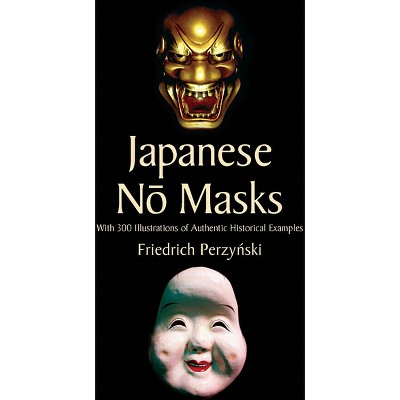Sponsored

City of Nets - by Otto Friedrich (Paperback)
In Stock
Sponsored
About this item
Highlights
- A dazzling social and cultural history of Hollywood's golden age in the decade from World War II to the Korean WarIn 1939, fifty million Americans went to the movies every week, Louis B. Mayer was the highest-paid man in the country, and Hollywood produced 530 feature films a year.
- Author(s): Otto Friedrich
- 736 Pages
- Performing Arts, Film
Description
About the Book
City of Nets: A Portrait of Hollywood in the 1940s opens with the movie industry at the pinnacle of its success, the banner year of 1939, which gave us Gone with the Wind, The Wizard of Oz, and Ninotchka, and ends 10 years later with the chaos of the HUAC hearings, the rise of television, and the Supreme Court's antitrust decision definitively ending the golden age of Hollywood as a vertically integrated monopoly.Book Synopsis
A dazzling social and cultural history of Hollywood's golden age in the decade from World War II to the Korean War
In 1939, fifty million Americans went to the movies every week, Louis B. Mayer was the highest-paid man in the country, and Hollywood produced 530 feature films a year. One decade and five thousand movies later, the studios were faltering. The 1940s became the decade of Hollywood's decline: anticommunist hysteria excommunicated some of its best talent, while a 1948 antitrust consent decree ended many of the business practices that had made the studio system so profitable.
In this masterful work of cultural history, the legendary Otto Friedrich tells the story of Hollywood's heyday and decline in a vivid narrative featuring an all-star cast of the actors, writers, musicians, composers, producers, directors, racketeers, labor leaders, journalists, and politicians who played major parts in the movie capital during the turbulent decade from World War II to the Korean War.
Friedrich draws on sources from celebrity biographies to trade-union history, mingling lively gossip with analysis of Hollywood's seedier business dealings and telling the stories of legendary movies such as Citizen Kane, The Maltese Falcon, Double Indemnity, and All About Eve.
A classic portrait of a special place in a special time, City of Nets gives us a singular behind-the-scenes glimpse into a bygone era that still captivates our imaginations.
From the Back Cover
In 1939, fifty million Americans went to the movies every week, Louis B. Mayer was the highest-paid man in the country, and Hollywood produced 530 feature films a year. One decade and five thousand movies later, the studios were faltering. The 1940s became the decade of Hollywood's decline: anticommunist hysteria excommunicated some of its best talent, while a 1948 antitrust consent decree ended many of the business practices that had made the studio system so profitable.
In this masterful work of cultural history, the legendary Otto Friedrich tells the story of Hollywood's heyday and decline in a vivid narrative featuring an all-star cast of the actors, writers, musicians, composers, producers, directors, racketeers, labor leaders, journalists, and politicians who played major parts in the movie capital during the turbulent decade from World War II to the Korean War.
Friedrich draws on sources from celebrity biographies to trade-union history, mingling lively gossip with analysis of Hollywood's seedier business dealings and telling the stories of legendary movies such as Citizen Kane, The Maltese Falcon, Double Indemnity, and All About Eve.
A classic portrait of a special place in a special time, City of Nets gives us a singular behind-the-scenes glimpse into a bygone era that still captivates our imaginations.
Review Quotes
"A 'City of Nets' is what Mr. Friedrich calls Hollywood in the title of his new social history, borrowing from Bertolt Brecht's Rise and Fall of the City of Mahagonny--a city of liberation and license stretched like a net to snare whatever passes. . . . Mr. Friedrich's intelligent prose makes for fascinating reading." - New York Times Book Review
"A 'City of Nets' is what Mr. Friedrich calls Hollywood in the title of his new social history. . . . Friedrich's intelligent prose makes for fascinating reading." - New York Times Book Review
"As rich and colorful a story as can be imagined and Friedrich has more than done it justice . . . in a narrative that is often funny and remarkably even-handed--a must for movie buffs and a rewarding read for everyone else." - Publishers Weekly
"With its tough humor, profound cynicism, and unerring nose for corruption and hypocrisy, City of Nets offers a distinctly Brechtian vision of Hollywood. . . . By mixing enjoyable gossip about the stars' personal lives and behind-the-scenes maneuverings with a shrewd look at the film world's often unsavory industrial underpinnings, Friedrich gives us a much clearer understanding of Hollywood's reciprocal relationship with American reality." - Village Voice
Shipping details
Return details
Trending Non-Fiction





Discover more options













